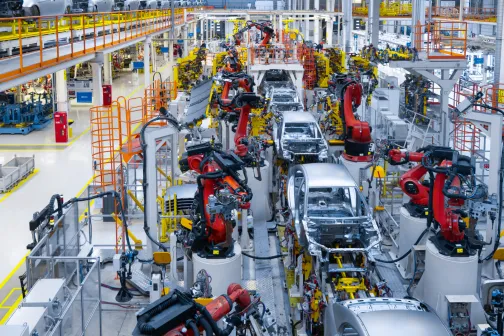Manufacturers' Insurance: Changes on the horizon
Published
Read time
Manufacturers have been enjoying steady insurance premiums for a number of years. However, businesses must ensure their risk management controls are watertight to ensure they keep ahead of significant changes in the insurance market.
The story so far…
Over the last decade, the global insurance market has maintained a steady, competitive environment. This has been created by an excess of capacity as capital providers continued to view the insurance sector as a positive investment.
Coupled with this, insurers have tried to increase their market share and we have seen a trend for mergers and acquisitions amongst the major global providers such as Axa & XL. Market consolidations have also continued with Allianz buying LV, and more recently, Legal & General.
This environment has been very positive for manufacturers. Manufacturers with good claims history and a proactive approach to risk management have enjoyed premium stability – at the very least. But most have also seen reductions in premiums with long term deals honouring their rate, with insurers chasing business in a saturated marketplace.
Stability in the UK takes a turn
Within the last two years, we have seen the sparks of change and many manufacturers will need to change their approach to buying insurance.
Premiums in specific types of insurance are beginning to rise. This includes insurance lines such as Professional Indemnity, Directors & Officers Liability, Marine as well as industry sectors like food, waste and construction. This is because insurers are focused on delivering profitability to meet their regulatory requirements as well as their capital providers and shareholders.
Whilst generally insurer loss ratios are improving, advancements in technology have led to the emergence of new types of claims and increasing costs. Motor insurance is no exception; accident costs are increasing due to the advancement of cars. In addition, a spate of significant fire losses in the food sector have focused insurers’ minds on the building materials used.
Looking at liability claims, recent legislation has certainly assisted in reducing fraudulent and opportunist claims. However, the courts are placing a greater onus on active management of risks and directors/officers responsibility and accountability.
The Grenfell tragedy highlighted fragilities within the construction sector. Whilst this firmed liability rates at the time, the recent review has not led to much improvement.
The drive for Return on Investment has seen large global insurers close certain business units. Recently, Aspen closed its UK MGA Aspen Risk Management and Tokio Marine placed the Group’s UK business TMKI into run-off.
For organisations affected, and their brokers, it will be their first experience of such an environment where insurers are looking at a tightening of terms, a reduction on their line size or capacity, rate increases and keeping a closer eye on their clients' risk management practices.
Keep your business ahead of the curve
In order to continue purchasing insurance that is consistent with previous years', in both cover quality and cost, manufacturers need to consider whether their business risk appeals to insurers.
Insurance buyers with robust risk management form attractive risks for insurers. And it is those, as well as risks with a good loss history, which are positioned to benefit most within this new environment. Those with gaps in risk management or a high claims history will need to work harder to position their risk to insurers.
If you are wondering how your business might be viewed by insurers ahead of your renewal, speak to Howden in order to get an overview of the market within your sector. At Howden, our broking, claims and risk management specialists deliver a co-ordinated service to assist you to put effective risk management plans and controls in place. These measures will be integral in generating insurers’ interest and securing favourable pricing.
Case Study example
Howden has been working with one manufacturer to avoid a significant increase in premium. Despite the fact there were some major insurer concerns, the team were able to achieve cost-effective cover.
The manufacturer had experienced a number of employee accidents leading to a poor claims history. Working with the manufacturer, Howden identified a trend behind the timing of these accidents and the business area they occurred in.
Howden worked with the manufacturer to introduce and implement measures to reduce accident frequency. This included documented training programmes and on-going risk assessments. Accepting that accidents happen, immediate post-accident investigation processes were introduced for a robust defence system. This, coupled with the work to reduce accidents, led to a reduction in accidents and an improved claims history.
Due to the increase in claims the renewal premium had initially increased by 90% compared to the previous year. However, Howden was able to secure a significantly reduced premium by understanding the impact of the risk management strategy and presenting this to insurers. Effectively, a potential 90% increase was reduced to 26%.

Neil Baxter
Associate Director, Corporate Risks